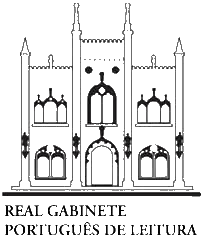Presença de Eça de Queirós, Ramalho Ortigão, Rafael Bordalo Pinheiro no debate e na polêmica naturalista no Brasil
Keywords:
Rafael Bordalo Pinheiro, Ramalho Ortigão, Eça de Queirós, naturalism in BrazilAbstract
The naturalistic and realistic aesthetic only developed to some extent in Brazil after 1881 with the release of O Mulato by Aluizio de Azevedo, three years after the famous "Primo Basilio polemic''. This new aesthetic style cannot be separated from either the social and political reform spirit nor the progress, which in that time moved young intelectuais and writers inspired in Brazil and in Portugal by the evolutionary theories and the positivist philosophies. Eça de Queiros, Ramalho Ortigao with As Farpas e Cronicas polémicas, in Recife's and Rio de Janeiro's newspapers, Bordale Pinheiro with his caricatures published in the satírica! newspapers of Brazil's capital embodied essential a mediation for the promotion of new ideas between Brazil and Europe after 1871. Given their contributions to Brazilian newspapers after 1880 both writers eventually became authentic Portuguese and Brazilian authors.
Downloads
Downloads
Published
How to Cite
Issue
Section
License
Authors who publish in Convergência Lusíada agree with the following terms:
- Authors retain copyright and grant the journal right of first publication with the work simultaneously licensed under a Creative Commons Attribution-NonCommercial 4.0 International License (CC-BY-NC 4.0) that allows others to share the work with an acknowledgment of the work's authorship and initial publication in this journal.
- Authors may enter into separate, additional contractual arrangements for the non-exclusive distribution of the journal’s published version of the work (e.g., post it to an institutional repository or publish it in a book), with an acknowledgment of its initial publication in this journal.
- Authors are permitted and encouraged to post their work online (e.g., in institutional repositories or on their website) prior to and during the submission process, as it can lead to productive exchanges, as well as earlier and greater citation of published work.

Revista Convergência Lusíada is licensed under a Creative Commons - Atribuição-NãoComercial 4.0 Internacional.









